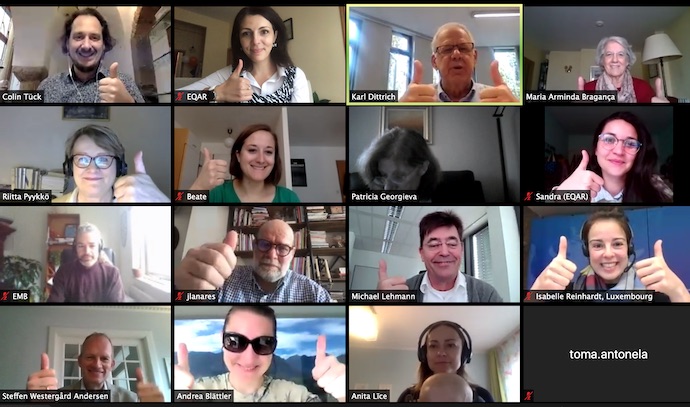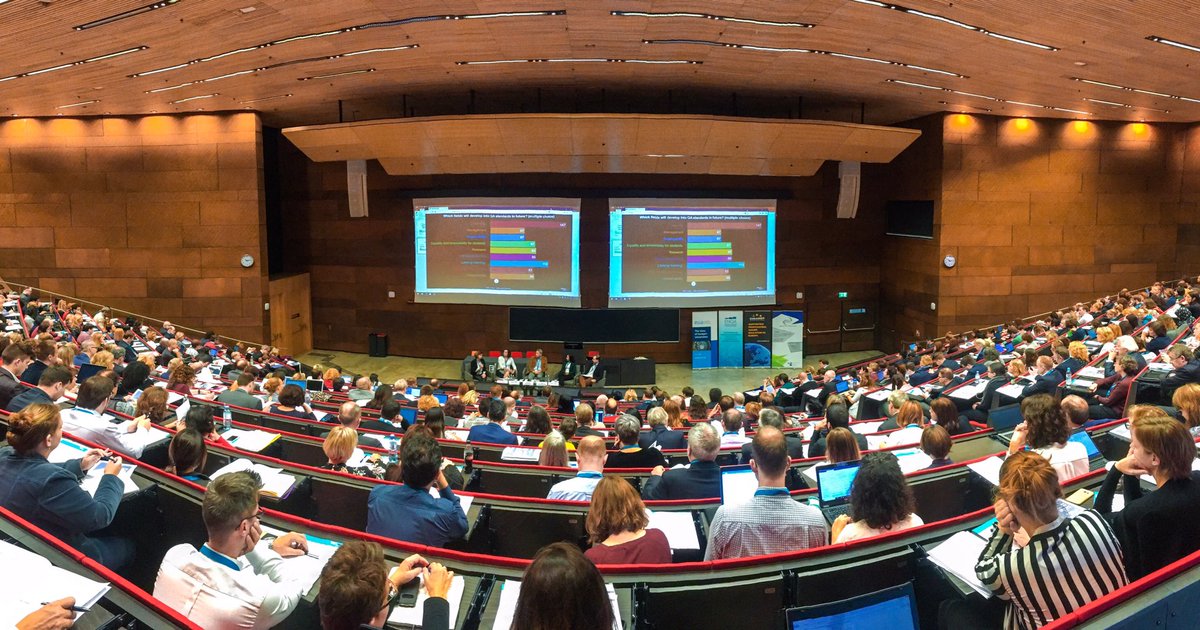EQAR NEWSLETTER - NOVEMBER 2020
News: Latest renewals of the Register Committee | Call for Tender: Coordination of the External Evaluation of EQAR | DEQAR update | Publication of the revised version of the Policy on the Use and Interpretation of the ESG | EQAF
Latest renewals of the Register Committee
The Register Committee met online on 2 November and approved the applications of registration renewal of two agencies:
- BAC – British Accreditation Council for Independent Further and Higher Education BAC reports in DEQAR
- MusiQuE – Music Quality Enhancement MusiQuE reports in DEQAR
With the number of registered agencies growing, so do the number of renewal applications, with some agencies applying for the second or third time. Registration on EQAR is granted for a period of five years, as stipulated by the ESG: “Agencies should undergo an external review at least once every five years in order to demonstrate their compliance with the ESG”.
Read more about the Register Committee meeting of 2 November
Have a look at the full decisions of the Register Committee
Call for Tender: Coordination of the External Evaluation of EQAR
We are looking for suitable organisations or experts to serve as coordinator of what will be EQAR’s second external evaluation. The requirements for the coordinator are as follows:
- Expertise in quality assurance of higher education, the policy thereof and in the workings of the Bologna Process
- At least 5 years of experience in similar evaluations in the field of higher education
- European or EHEA experience
- Appropriate standing and reputation and without conflict of interest
There is still time until 18 November to send your tender. Read more and download the full call for tender here.
DEQAR update
Activities within the framework of the DEQAR CONNECT project are continuing in full swing, despite pandemic related restrictions.
Expand coverage to EHEA countries currently under-represented in DEQAR:
- Project partner quality assurance agencies are getting (virtual) peer support from DEQAR experts to help them choose and implement the most efficient system to upload reports, answer questions and overcoming obstacles where necessary.
 Enhance connectivity by exploiting existing synergies and exploring new opportunities to use DEQAR data:
Enhance connectivity by exploiting existing synergies and exploring new opportunities to use DEQAR data:
- ENIC-NARICs partners (CIMEA, CNRED, France Éducation international and Nuffic) are now in the planning phase of where exactly they will integrate information on quality assurance from DEQAR (using the web API), with a view of speeding up the recognition process for qualifications from those higher education institutions present in DEQAR.
- EQAR hosted a Roundtable on Higher Education Data Interoperability on 15 September. The meeting gathered representatives of various European initiatives in the field of HE data in order to identify opportunities to better connect existing systems and data sets and to thus reduce unnecessary duplication of work. Read more about the Roundtable and its participants here.
- DEQAR Developers have started to plan the implementation of a compatibility layer for Europass Digital Credentials so that DEQAR data can feed directly into Accreditation Database underlying the Europass Digital Credentials Infrastructure. The data format required for the Europass Accreditation Database has been analysed and compared with the DEQAR data structure. It is expected that the data can easily be provided in the required format, while the main challenge will be to identify higher education institutions correctly.
Publication of the revised version of the Policy on the Use and Interpretation of the ESG
Following the consultation launched last year on the Policy on the Use and Interpretation of the ESG, the revised version of the document has now been published. The policy on the Use and Interpretation of the ESG assists applicant QA agencies, review panels and the Register Committee itself when interpreting the standards. They support a common understanding, but do not claim to be exhaustive or exclusive.
The Register Committee took in comments and suggestions that were provided by reviewed agencies, review panel members, review coordinators and also by the EQAR General Assembly. The new version also considers the new practices and approaches in external quality assurance, as a response to the COVID-19 pandemic and also the recent developments in higher education, underlining the broad applicability of the ESG at higher education levels outside of the traditional standalone degree programmes (e.g. micro-credentials, alternative credentials, continuing education, etc.).
Read more and download the Policy
EQAF – European Quality Assurance Forum
Registrations are still open for the 2020 European Quality Assurance Forum (EQAF), which will take place on 12-13 November 2020 in the form of online sessions. This year, all the sessions are free of charge and open to all interested participants upon registration.
Under the title “Flexible higher education: implications for QA”, this year’s Forum will explore whether quality assurance is fit for higher education’s current dynamic and flexible environment. It will also look at how quality assurance could better support higher education institutions in the transition towards being more flexible and encourage them to make the most of it.
Registration information for the online sessions, the updated programme, the event booklet and a “2020 EQAF playlist” of the speakers' video presentations are available here.

(EQAF - Vienna, 2018)
